Table of Contents
Depression is a pervasive mental health challenge, affecting millions worldwide. Its symptoms, including persistent sadness, low energy, and diminished motivation, can significantly impact daily life. While traditional treatments like therapy and antidepressants are widely used, many individuals seek additional, natural solutions to support their mental health journey.
Nootropics, also known as cognitive enhancers, have gained attention for their potential to improve mood, energy, and mental clarity. By targeting brain chemistry and promoting neural health, certain nootropics may help alleviate the symptoms of depression and enhance overall well-being.
This article explores the best nootropics for managing depression, focusing on their mechanisms, benefits, and safe integration into daily life. Whether you’re seeking to complement traditional treatments or explore new options, understanding these natural cognitive enhancers could be a step toward improved emotional balance and resilience.
Understanding Depression and Its Impact on the Brain

Depression is a complex mental health condition that affects not only mood but also cognitive function and overall brain health. To understand how nootropics can help manage depression, it’s important to explore the condition’s effects on brain chemistry and function.
How Depression Affects the Brain
Neurotransmitter Imbalance:
Depression is often linked to disruptions in key neurotransmitters:
- Serotonin: Regulates mood, sleep, and emotional stability. Low levels are associated with persistent sadness and anxiety.
- Dopamine: Drives motivation and reward. Reduced dopamine activity can lead to apathy and low energy.
- Norepinephrine: Influences focus and arousal. Imbalances may contribute to fatigue and poor concentration.
Inflammation and Brain Health:
- Chronic inflammation in the brain can impair neural communication and contribute to depressive symptoms. This inflammation may be triggered by stress, poor diet, or underlying medical conditions.
Neuroplasticity and Cognitive Decline:
- Depression can reduce the brain’s ability to form new neural connections, a process known as neuroplasticity. This can lead to cognitive decline, such as memory issues and difficulty focusing.
How Nootropics Can Help
Nootropics address these underlying issues by:
- Supporting Neurotransmitter Balance: Many nootropics enhance serotonin, dopamine, and norepinephrine activity, alleviating mood disturbances.
- Reducing Inflammation: Certain nootropics have anti-inflammatory properties that protect the brain and promote neural health.
- Enhancing Neuroplasticity: Some nootropics stimulate the growth and repair of neurons, helping to restore cognitive function and emotional resilience.
By targeting these mechanisms, nootropics offer a natural way to complement traditional treatments for depression, potentially reducing symptoms and improving quality of life. In the next section, we’ll explore the criteria for choosing the most effective nootropics for managing depression.
Key Criteria for Nootropics for Depression

Choosing the right nootropics for managing depression involves understanding how these supplements support brain health and alleviate depressive symptoms. The most effective nootropics target neurotransmitters, reduce stress, and promote overall mental well-being.
1. Supports Neurotransmitter Balance
Depression is often linked to imbalances in key neurotransmitters like serotonin, dopamine, and norepinephrine. The ideal nootropic for depression should help restore these chemical messengers, improving mood and emotional stability.
Example: L-theanine enhances serotonin activity, promoting relaxation and a positive mood.
2. Reduces Stress and Anxiety
Stress and anxiety frequently coexist with depression, exacerbating symptoms like fatigue and poor concentration. Nootropics that lower cortisol levels and promote relaxation can create a more balanced mental state.
Example: Ashwagandha reduces cortisol and helps the body adapt to stress, supporting emotional resilience.
3. Enhances Energy and Motivation
Fatigue and low energy are common in depression, making it difficult to stay motivated. Nootropics that boost energy and focus can help counteract these symptoms and restore drive.
Example: Rhodiola Rosea combats mental and physical fatigue, improving stamina and mood.
4. Improves Cognitive Clarity
Depression often impairs cognitive function, leading to “brain fog” and difficulty concentrating. Nootropics that enhance neuroplasticity and protect brain health can restore mental clarity and focus.
Example: Lion’s Mane Mushroom supports neurogenesis and cognitive repair, alleviating cognitive decline associated with depression.
5. Safe and Evidence-Backed
Safety is paramount when choosing nootropics, especially for individuals managing mental health conditions. The best nootropics for depression are supported by research and have minimal side effects when used responsibly.
Example: Omega-3 fatty acids are well-researched for their role in mood stabilization and brain health.
By selecting nootropics that align with these criteria, individuals can find effective solutions for managing depressive symptoms while improving their overall cognitive and emotional well-being. In the next section, we’ll explore the specific nootropics that meet these standards and their benefits for depression management.
Best Nootropics for Depression
Nootropics offer promising solutions for individuals managing depression by targeting the condition’s root causes, such as neurotransmitter imbalances, inflammation, and cognitive decline. Below is an in-depth exploration of the top nootropics for alleviating depressive symptoms, their mechanisms of action, and how they can be integrated into daily routines.
1. L-Theanine
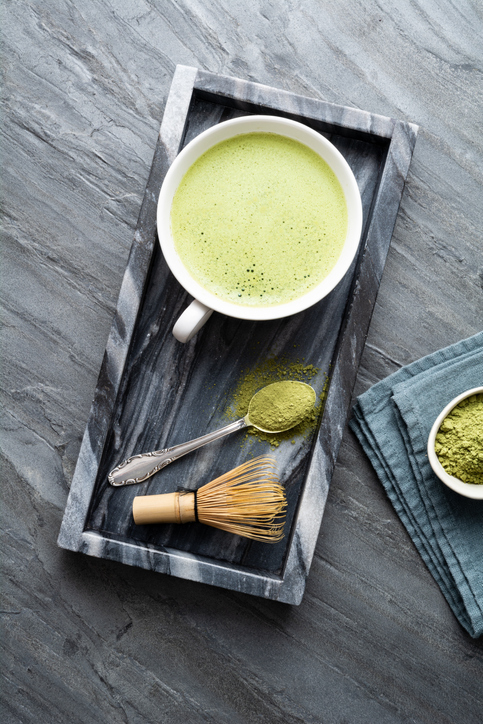
Benefits:
- Promotes relaxation and reduces stress without causing drowsiness.
- Increases alpha brain waves, which are associated with calm and focused mental states.
- Enhances serotonin and dopamine levels to stabilize mood.
Mechanism:
L-theanine, an amino acid found in tea leaves, modulates neurotransmitter activity by increasing GABA, serotonin, and dopamine. These neurotransmitters play a central role in emotional regulation, making L-theanine particularly effective for reducing anxiety-related symptoms of depression.
Usage:
- Take 100–200 mg daily, often in the morning or during stressful periods.
- Can be paired with caffeine for a calm, focused boost.
2. Ashwagandha
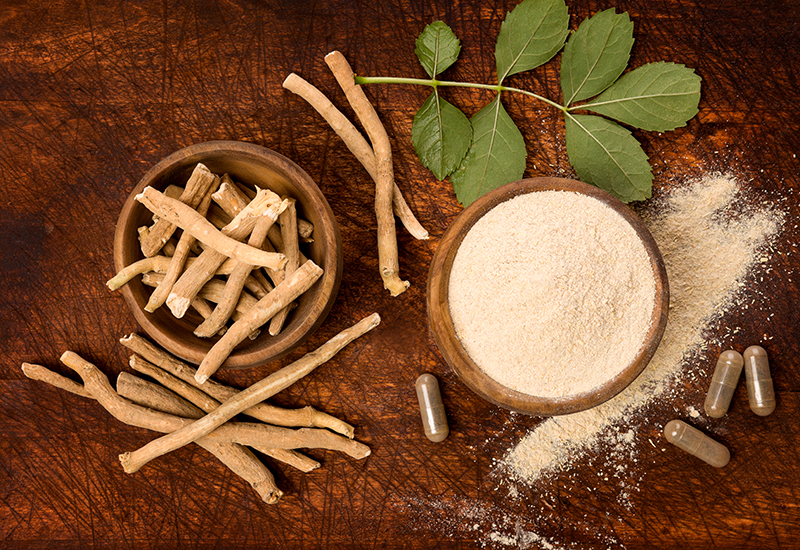
Benefits:
- Lowers cortisol levels, helping to manage stress and anxiety.
- Supports serotonin activity, improving mood and emotional resilience.
- Enhances energy and reduces symptoms of fatigue commonly associated with depression.
Mechanism:
As an adaptogen, Ashwagandha helps the body adapt to stress by modulating the hypothalamic-pituitary-adrenal (HPA) axis, which regulates cortisol production. This creates a more balanced mental state, reducing the burden of chronic stress on mood.
Usage:
- Take 300–600 mg daily, ideally with food.
- Standardized extracts with at least 5% withanolides are recommended for optimal effects.
3. Rhodiola Rosea

Benefits:
- Reduces mental and physical fatigue, restoring energy and motivation.
- Improves serotonin and dopamine activity, supporting emotional balance.
- Increases stress resilience, helping to manage anxiety-related depressive symptoms.
Mechanism:
Rhodiola is an adaptogen that modulates stress-response pathways, particularly those involving serotonin and dopamine. Its effects on fatigue make it ideal for individuals experiencing low energy and apathy due to depression.
Usage:
- Take 200–400 mg daily, preferably in the morning.
- Choose a standardized extract containing rosavins and salidrosides for consistent results.
4. Omega-3 Fatty Acids
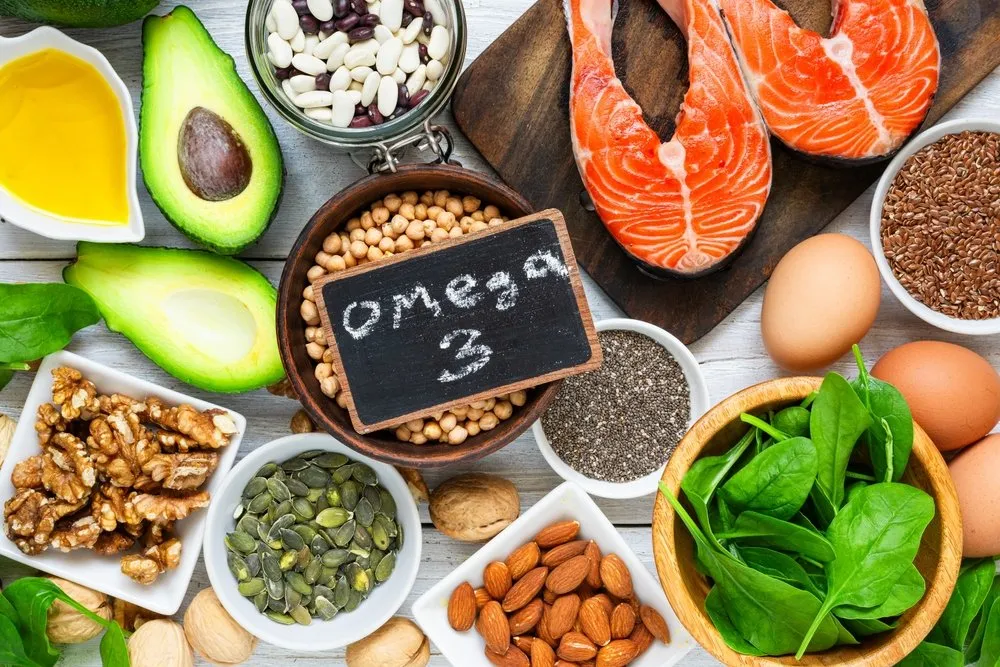
Benefits:
- Reduces brain inflammation, which is often linked to depression.
- Supports serotonin production and function.
- Promotes long-term brain health and neuroprotection.
Mechanism:
DHA and EPA, the two key components of omega-3 fatty acids, are crucial for brain health. They enhance the fluidity of cell membranes, facilitating the production and signaling of neurotransmitters like serotonin.
Usage:
- Take 1,000–2,000 mg of a high-quality fish oil supplement daily.
- Ensure the supplement has a high concentration of EPA, which is particularly effective for mood stabilization.
5. Natural Nicotine

Benefits:
- Improves focus and cognitive clarity, helping to alleviate depression-induced mental fog.
- Stimulates the brain’s reward system, enhancing motivation and mood.
Mechanism:
Natural nicotine interacts with acetylcholine receptors, improving neurotransmitter signaling and stimulating dopamine release. Controlled products like Nic Nac Naturals provide these benefits without the risks associated with smoking or vaping.
Usage:
- Use controlled-dose lozenges or patches as directed.
- Consult a healthcare provider to ensure safe usage.
6. Bacopa Monnieri

Benefits:
- Reduces stress and stabilizes mood by modulating serotonin and dopamine levels.
- Enhances memory and cognitive function, addressing depression-induced cognitive decline.
- Provides neuroprotective benefits for long-term brain health.
Mechanism:
Bacopa Monnieri works by regulating neurotransmitter pathways and protecting neurons from oxidative stress. Its calming effects make it a valuable tool for managing emotional instability and cognitive symptoms of depression.
Usage:
- Take 300–500 mg daily, with meals.
- Look for standardized extracts with a high percentage of bacosides for maximum effectiveness.
7. Lion’s Mane Mushroom
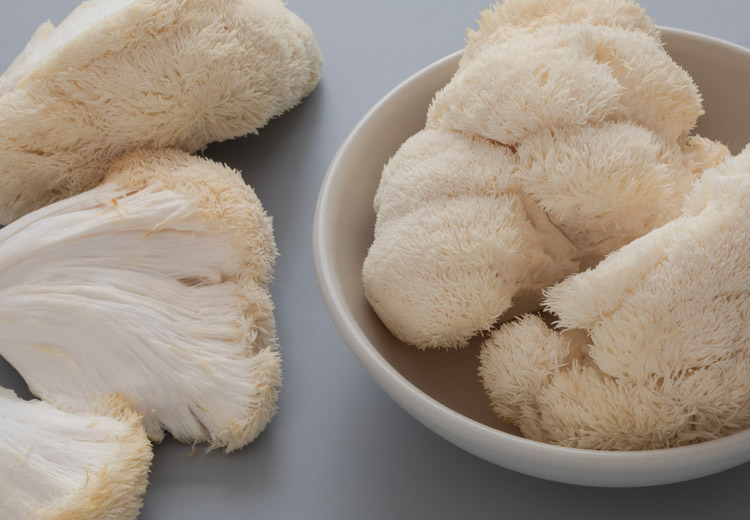
Benefits:
- Promotes neurogenesis and brain repair, addressing cognitive deficits associated with depression.
- Supports emotional balance by improving overall brain health.
Mechanism:
Lion’s Mane stimulates the production of nerve growth factor (NGF), which is essential for the growth, repair, and maintenance of neurons. This makes it particularly effective for reversing the cognitive decline and “brain fog” often experienced with depression.
Usage:
- Take 500–1,000 mg daily as part of a nootropic stack or standalone supplement.
8. SAM-e (S-Adenosyl Methionine)
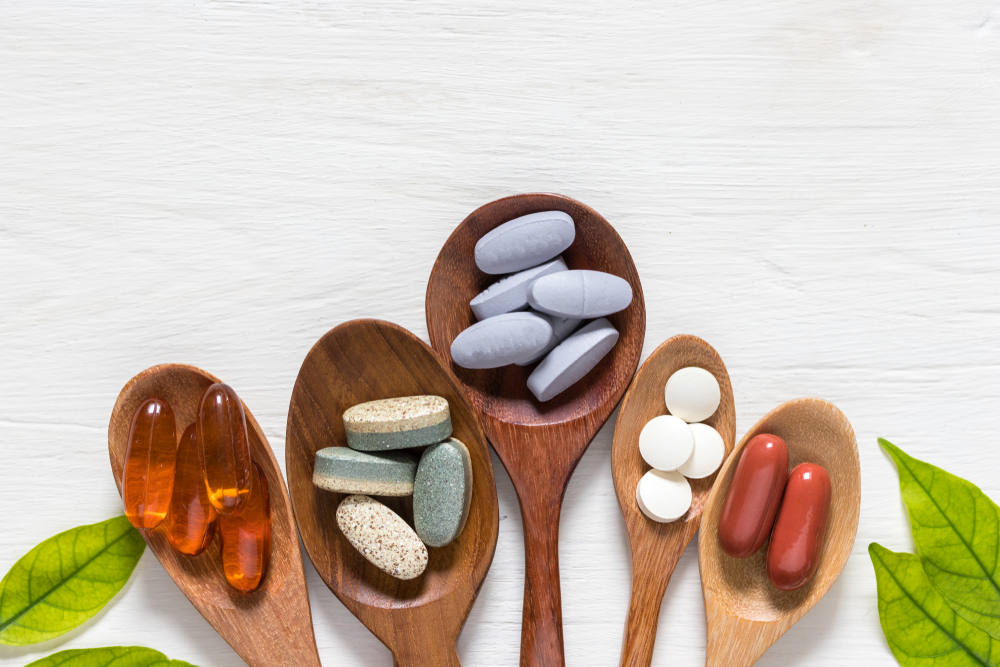
Benefits:
- Enhances serotonin and dopamine production.
- Backed by research as an effective natural alternative to traditional antidepressants.
Mechanism:
SAM-e supports the methylation process in the brain, which is essential for the production and regulation of neurotransmitters. This activity directly improves mood and emotional stability.
Usage:
- Take 200–400 mg daily, preferably on an empty stomach.
- Gradually increase the dosage if needed, based on individual response.
9. Magnesium L-Threonate
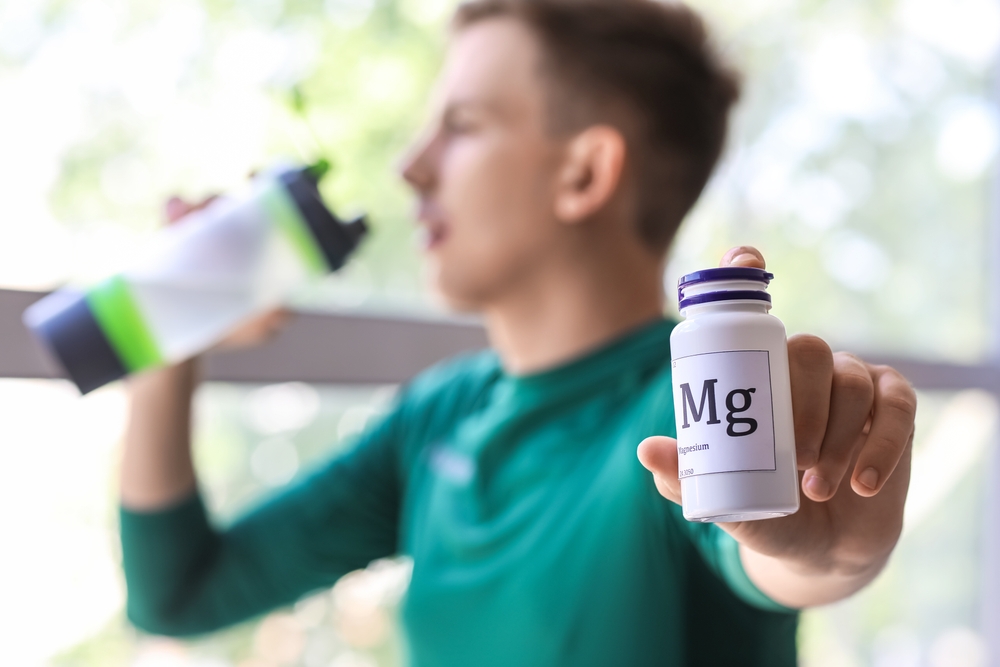
Benefits
- Calms overactive brain activity, reducing stress and anxiety.
- Improves GABA and serotonin function for mood stabilization.
Mechanism:
Magnesium L-threonate crosses the blood-brain barrier more effectively than other forms of magnesium, directly enhancing brain function and reducing symptoms of depression.
Usage:
- Take 1,500–2,000 mg daily, split into two doses.
- Consider pairing with omega-3 fatty acids for synergistic brain health benefits.
10. 5-HTP (5-Hydroxytryptophan)
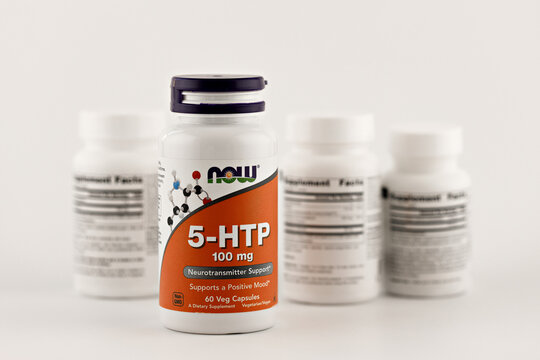
Benefits:
- Increases serotonin production, alleviating mood disturbances.
- Helps improve sleep quality, which is often disrupted in depression.
Mechanism:
5-HTP is a precursor to serotonin, directly supporting the production of this critical neurotransmitter. By improving serotonin availability, it helps stabilize mood and reduce depressive symptoms.
Usage:
- Take 50–200 mg daily, preferably in the evening.
- Avoid combining with other serotonin-boosting medications without consulting a healthcare provider.
Each of these nootropics offers unique benefits for individuals managing depression, from enhancing mood and energy to supporting long-term brain health. By targeting multiple pathways, they provide a holistic approach to alleviating depressive symptoms. In the next section, we’ll discuss which nootropics to avoid to ensure safe and effective use.
Nootropics to Avoid for Depression
While many nootropics can support mental health, some may exacerbate depressive symptoms or introduce unwanted side effects.
Understanding which nootropics to avoid is essential for ensuring safety and effectiveness in managing depression.
1. High-Dose Stimulants
Examples: Adderall, Ritalin, or excessive caffeine.
Why to Avoid:
- These stimulants may temporarily boost energy and focus but can lead to emotional crashes, increased anxiety, and dependency.
- Overuse disrupts sleep patterns, worsening fatigue and mood instability.
Alternative: Use low to moderate doses of caffeine paired with L-theanine to provide calm energy without overstimulation.
2. Synthetic Nootropics with Unknown Effects
Examples: Experimental compounds or poorly regulated racetams like Phenibut.
Why to Avoid:
- Many synthetic nootropics lack sufficient research on their safety profiles, especially for individuals with depression.
- They may interact unpredictably with medications or exacerbate symptoms like anxiety and mood swings.
Alternative: Opt for well-researched natural nootropics such as Bacopa Monnieri or Omega-3 fatty acids.
3. Nootropics That Strongly Affect Serotonin
Examples: St. John’s Wort, 5-HTP (when combined with antidepressants).
Why to Avoid:
- Combining serotonin-boosting nootropics with antidepressant medications can lead to serotonin syndrome, a potentially dangerous condition characterized by confusion, rapid heart rate, and agitation.
- Excess serotonin activity can also disrupt emotional regulation.
Alternative: If on antidepressants, prioritize nootropics like Ashwagandha or Lion’s Mane that support brain health without directly impacting serotonin pathways.
4. High-Dose Nicotine in Traditional Forms
Examples: Smoking or vaping high-nicotine products.
Why to Avoid:
- Nicotine in cigarettes or vaping devices is highly addictive and can lead to dependency and withdrawal symptoms that worsen depression.
- Harmful additives in these products may negatively impact physical and mental health.
Alternative: Use controlled products like Nic Nac Naturals, which deliver low doses of natural nicotine without the harmful side effects of traditional nicotine products.
5. Poorly Labeled or Unregulated Supplements
Examples: Supplements from unverified sources or those lacking transparency in ingredients and dosages.
Why to Avoid:
- These supplements may contain harmful additives or insufficient active ingredients, rendering them ineffective or unsafe.
- Unclear labeling can lead to unintended interactions with medications or other supplements.
Alternative: Always choose nootropics from reputable brands with third-party testing and clear ingredient lists.
6. Overuse of Synthetic Nootropics
Examples: Modafinil or Phenylpiracetam (when used without cycling).
Why to Avoid:
- Overuse of powerful synthetic nootropics can lead to tolerance, reduced efficacy, and emotional dependency.
- These compounds may also exacerbate anxiety or overstimulate the brain, worsening depressive symptoms.
Alternative: Use synthetic nootropics sparingly and pair them with adaptogens like Rhodiola Rosea for a balanced approach to energy and mood.
Key Takeaway
Avoid high-stimulant, poorly regulated, or overly experimental nootropics when managing depression. Instead, prioritize safe, evidence-backed natural options that align with your overall mental health goals. This ensures that nootropics enhance mood and cognitive performance without introducing additional risks.
Integrating Nootropics into a Depression Management Routine

Incorporating nootropics into a daily routine can significantly enhance their effectiveness in managing depression.
By combining the right nootropics with healthy lifestyle practices, individuals can create a comprehensive approach to improving mood, energy, and cognitive function.
1. Start with One Nootropic at a Time
Introducing one nootropic at a time allows you to evaluate its effects on mood, energy, and mental clarity. This approach also helps identify potential side effects or interactions with medications.
Begin with L-theanine or Ashwagandha for mood stabilization and relaxation.
2. Pair Nootropics with a Balanced Diet
Nutrition plays a vital role in mental health. A diet rich in omega-3 fatty acids, antioxidants, and essential vitamins supports brain function and complements nootropic effects.
- Brain-Boosting Foods: Fatty fish, leafy greens, nuts, seeds, and berries.
- Nootropic Pairing: Combine a healthy diet with Omega-3 supplements or Magnesium L-Threonate to enhance brain health.
3. Integrate Exercise and Physical Activity
Regular exercise stimulates dopamine and serotonin production, alleviating depressive symptoms. Combining nootropics with physical activity creates a synergistic effect, boosting energy and mood.
Take Rhodiola Rosea before a morning workout to reduce fatigue and increase endurance.
4. Practice Mindfulness and Stress Management
Mindfulness practices such as meditation, yoga, or deep breathing reduce stress and promote emotional balance. Nootropics that lower cortisol levels, like Ashwagandha, can amplify these benefits.
Practical Tip: Use a nootropic like L-theanine before meditation for enhanced relaxation and focus.
5. Establish a Morning Routine for Motivation
Starting the day with a focused and energizing routine helps combat morning sluggishness and depressive symptoms.
Example Morning Routine:
- Wake-Up: Begin with light stretching or exercise.
- Supplement: Take a stack of L-tyrosine and Omega-3s to support motivation and focus.
- Activity: Engage in a productive task to set a positive tone for the day.
6. Support Evening Relaxation and Sleep
Good sleep is critical for managing depression. Nootropics that improve sleep quality and reduce nighttime stress can help prepare the brain for restorative rest.
Example Evening Routine:
- Wind-Down: Engage in calming activities like reading or light journaling.
- Supplement: Take Magnesium L-Threonate or 5-HTP to promote relaxation and better sleep.
7. Monitor Progress and Adjust as Needed
Keep track of how each nootropic affects mood, energy, and focus over time. Regularly review and adjust your routine to optimize results.
Tracking Tools: Use a journal or app to document changes in symptoms and overall well-being.
Sample Daily Routine for Depression Management
Morning:
- L-tyrosine for motivation.
- Omega-3 fatty acids for long-term brain health.
- Light exercise or stretching.
Afternoon:
- Rhodiola Rosea to combat midday fatigue and stress.
- Nutritious meal with brain-boosting foods.
Evening:
- Magnesium L-Threonate or 5-HTP for relaxation and sleep support.
- Mindfulness or journaling to unwind.
By integrating nootropics into a structured routine that includes healthy habits, individuals can maximize their benefits for managing depression. This holistic approach enhances mood, energy, and cognitive clarity, providing a foundation for long-term well-being.
Benefits of Nootropics for Depression

Nootropics offer a range of benefits for individuals managing depression, addressing both emotional and cognitive challenges. These cognitive enhancers target key aspects of brain health, providing support for mood, energy, and mental clarity.
1. Improved Mood and Emotional Stability
Nootropics like L-theanine, Ashwagandha, and 5-HTP help regulate neurotransmitters such as serotonin and dopamine, which play critical roles in mood and emotional balance.
- Example: Ashwagandha reduces cortisol levels, promoting relaxation and emotional resilience.
- Result: Reduced feelings of sadness and anxiety, leading to a more positive outlook.
2. Enhanced Energy and Reduced Fatigue
Fatigue is a common symptom of depression, making it difficult to stay motivated. Nootropics like Rhodiola Rosea and Acetyl-L-Carnitine (ALCAR) boost energy levels and combat mental and physical exhaustion.
- Example: Rhodiola Rosea alleviates fatigue by enhancing stress resilience and supporting dopamine pathways.
- Result: Improved stamina and drive to complete daily tasks.
3. Increased Motivation and Focus
Depression often leads to a lack of motivation and mental fog. Nootropics that support dopamine activity, such as L-tyrosine and natural nicotine, can reignite drive and improve cognitive clarity.
- Example: L-tyrosine enhances dopamine synthesis, boosting motivation and focus.
- Result: Greater ability to tackle goals and stay productive.
4. Stress Reduction and Anxiety Management
Stress and anxiety are often comorbid with depression, further complicating emotional well-being. Nootropics like Magnesium L-Threonate and Bacopa Monnieri reduce stress by calming overactive neural activity and lowering cortisol levels.
- Example: Magnesium L-Threonate supports GABA function, creating a calming effect on the brain.
- Result: A more relaxed mental state, reducing the overall burden of depressive symptoms.
5. Long-Term Brain Health and Resilience
Chronic depression can lead to cognitive decline and reduced neuroplasticity. Nootropics that promote neurogenesis and protect against inflammation, such as Lion’s Mane Mushroom and Omega-3 fatty acids, support long-term brain health.
- Example: Lion’s Mane stimulates nerve growth factor (NGF), helping to repair and maintain neural connections.
- Result: Enhanced cognitive function and resilience against future mental health challenges.
6. Better Sleep and Restorative Recovery
Sleep disturbances are common in depression and can worsen symptoms. Nootropics like 5-HTP and Magnesium L-Threonate promote relaxation and improve sleep quality, supporting the brain’s natural recovery processes.
- Example: 5-HTP increases serotonin levels, which are converted into melatonin for better sleep.
- Result: More restorative rest, reducing fatigue and improving overall mood.
7. Holistic Support for Well-Being
By addressing multiple aspects of brain health, nootropics provide holistic support for managing depression. They work synergistically with lifestyle changes like exercise, mindfulness, and a healthy diet to enhance overall mental and physical well-being.
- Result: A comprehensive approach to improving quality of life.
Nootropics offer a powerful and natural way to alleviate depressive symptoms and restore mental and emotional balance. By addressing the root causes of depression and supporting brain health, they empower individuals to reclaim their focus, energy, and happiness.
Conclusion
Depression is a multifaceted condition that impacts mood, energy, and cognitive function, but nootropics provide a natural and effective way to support mental health. From mood stabilizers like Ashwagandha and 5-HTP to brain health enhancers like Lion’s Mane and Omega-3s, the right nootropics can address the root causes of depression while boosting overall well-being.
When integrated into a balanced routine that includes healthy lifestyle practices, these cognitive enhancers can amplify resilience and promote lasting recovery. By prioritizing safe, evidence-backed nootropics, individuals can take meaningful steps toward emotional stability and improved mental clarity.
Explore trusted products like Nic Nac Naturals to safely enhance your mood and cognitive function. With the right tools, you can build a foundation for a healthier, happier life.

Hi, Dave Michaelson here, a longtime biohacker. I started this blog to help you focus on natural ways to improve health and performance. My work revolves around analyzing the science behind cognitive enhancers, nutrition, and longevity strategies. Natural nicotine products are one of my interests, particularly their effects on focus and energy. Everything I share is based on research and real-world application, ensuring practical, reliable insights. The information on my blog is not medical advice. Please do your own research.




